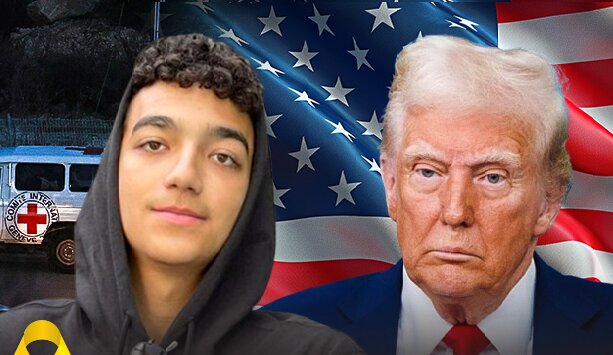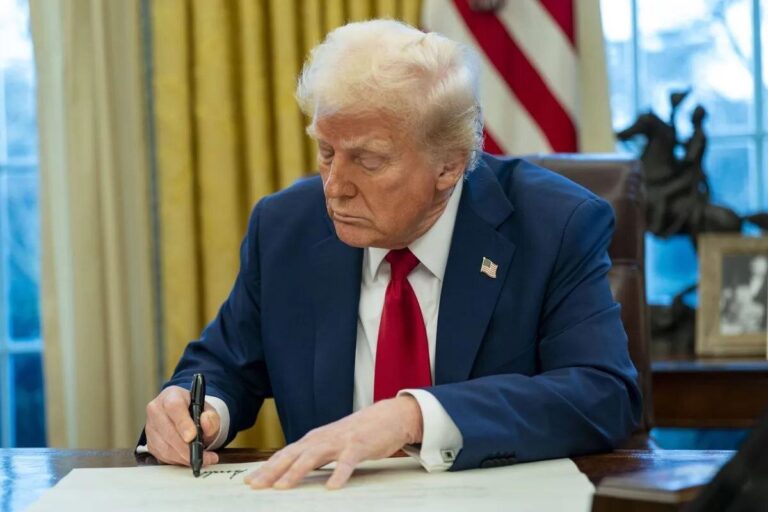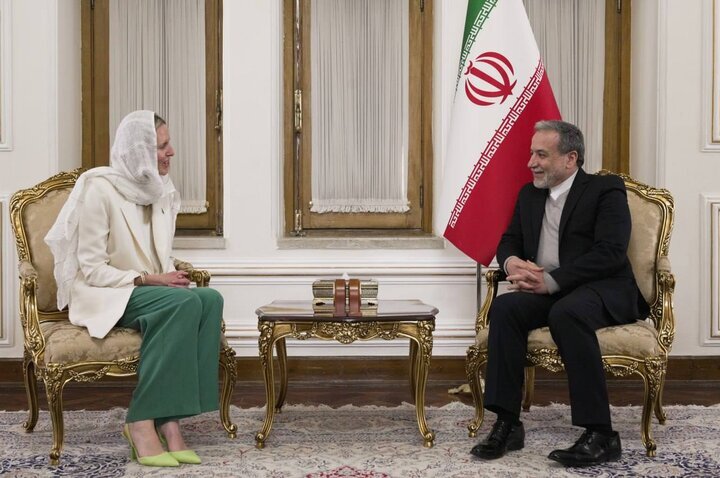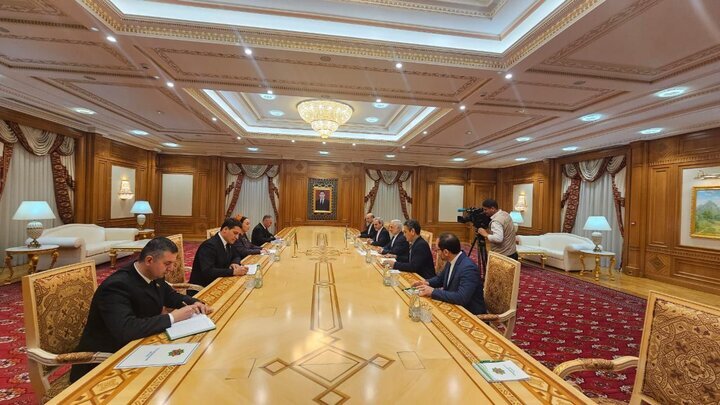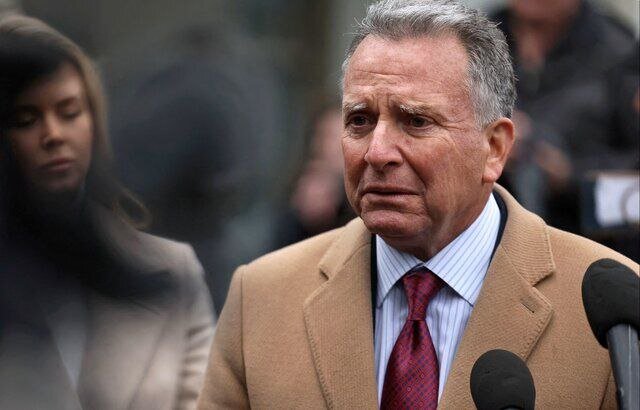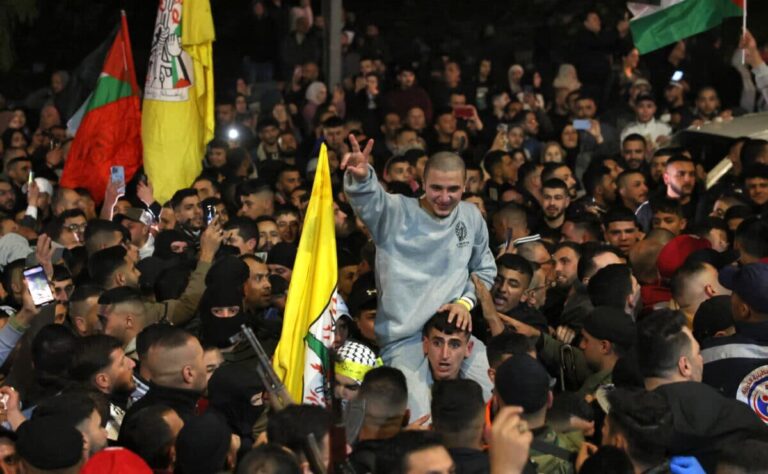Hamas Reaches Out to Pro-Trump Activist for Secret Negotiations Leading to Edan Alexander’s Release
Backchannel talks have led to the significant release of Edan Alexander, the last American held in Gaza, showcasing intricate diplomacy involving multiple parties including Hamas, the U.S., and Israeli officials. These negotiations, initially sparked by a message from a Hamas official to Bishara Bahbah, a former leader of “Arab Americans for Trump,” have shed light on the complexities of hostage negotiations in this volatile region.
The discussions began in late April when a Hamas official reached out to Bahbah, aiming to establish communication with Trump envoy Steve Witkoff. While Hamas sought to leverage this opportunity to persuade President Trump to exert more pressure on Israel, Witkoff’s primary focus was on securing Alexander’s release. Bahbah, a Palestinian-American businessman who played a pivotal role in engaging Arab voters during the 2024 campaign, became an unexpected intermediary in these sensitive talks.
The backchannel negotiations gained momentum last week, with around 20 messages exchanged between Bahbah and various parties. This included direct communication with Khalil al-Hayya, Hamas’s chief negotiator. With support from Qatari officials, Witkoff convinced Hamas that releasing Alexander unconditionally would have a substantial impact on Trump’s administration.
On Sunday night, approximately 10 PM Doha time, Hamas formally agreed to Alexander’s release. Witkoff promptly conveyed the news to Alexander’s parents, marking a deeply emotional moment for everyone involved. Notably, Israeli officials were not informed of these clandestine discussions through the White House; instead, they learned of them via their intelligence services. During a visit to Washington by Israeli Prime Minister Netanyahu’s aide Ron Dermer, U.S. officials did not reveal the backchannel, prompting Dermer to inquire about it himself. Witkoff confirmed the ongoing talks but clarified that Israel would not be required to make any concessions and that Hamas had not yet committed to the release.
Previous efforts to negotiate Alexander’s freedom had included unprecedented direct talks in March between Trump’s hostage envoy Adam Boehler and Hamas leaders in Qatar. However, these discussions collapsed just hours before Trump’s State of the Union address, with Hamas demanding the release of 250 prisoners held by Israel as part of the deal. It was suspected that aides to Netanyahu leaked details of these talks to the press, aiming to undermine the negotiations. Witkoff subsequently suggested a plan where Hamas would release Alexander if Trump publicly called for a temporary ceasefire and broader negotiations, but this proposal was rejected by Hamas.
During this period, Israel intensified its military operations in Gaza, ramping up ground incursions, airstrikes, and blocking humanitarian aid. On April 22, Qatari Prime Minister Mohammed bin Abdul Rahman al-Thani met with Trump and Witkoff at the White House to present a Hamas-backed proposal that aimed at a comprehensive hostage release and a war-ending deal. The U.S. administration favored a shorter, partial agreement instead. After returning to Doha, al-Thani communicated this to Hamas, promoting a goodwill gesture towards Trump, which ultimately led to the outreach to Bahbah.
On Sunday, while negotiating with Iran’s foreign minister in Muscat, Witkoff also coordinated with Qatar’s prime minister to finalize the agreement. According to a Palestinian official, the Trump administration proposed a 70 to 90-day ceasefire and the initiation of final negotiations in exchange for the release of Alexander and 10 other hostages. This proposal included guarantees from the U.S., Qatar, and Egypt that hostilities would not resume during the ceasefire, although the U.S. has not officially confirmed these details.
Following Hamas’s agreement to release Alexander, Witkoff informed Netanyahu, Dermer, and Alexander’s family of the developments. A senior U.S. official credited the Qatari prime minister’s influence in persuading Hamas while acknowledging Netanyahu’s military operations as crucial to the negotiations. However, Bahbah’s involvement was downplayed as secondary to the overall process.
In a subsequent call on Monday, Trump did not pressure Netanyahu to pause military actions or cancel a planned significant ground operation in Gaza. Israeli officials noted that Hamas did not secure any commitments from Trump during this time, and their hopes of swaying him towards their stance fell short. Hamas calculated that they would gain limited sympathy from the U.S. public and favorable statements from Trump.
Looking ahead, Witkoff and Israeli negotiators are set to travel to Doha to resume discussions on a broader ceasefire and hostage deal relating to Gaza. Israeli officials remain cautious about the possibility of a breakthrough, warning Witkoff that he has only four days to secure a deal before new military operations commence.
